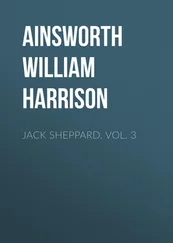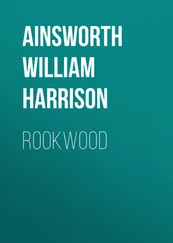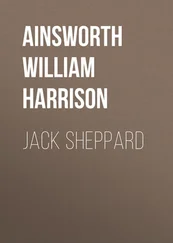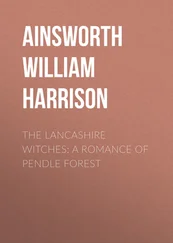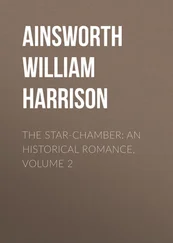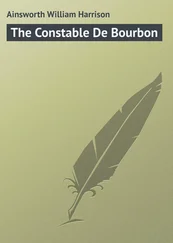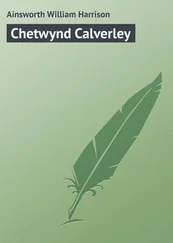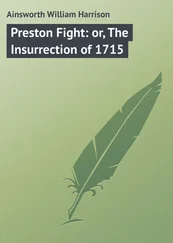W. Ainsworth - Rookwood
Здесь есть возможность читать онлайн «W. Ainsworth - Rookwood» весь текст электронной книги совершенно бесплатно (целиком полную версию без сокращений). В некоторых случаях можно слушать аудио, скачать через торрент в формате fb2 и присутствует краткое содержание. Жанр: Старинная литература, на русском языке. Описание произведения, (предисловие) а так же отзывы посетителей доступны на портале библиотеки ЛибКат.
- Название:Rookwood
- Автор:
- Жанр:
- Год:неизвестен
- ISBN:нет данных
- Рейтинг книги:4 / 5. Голосов: 1
-
Избранное:Добавить в избранное
- Отзывы:
-
Ваша оценка:
- 80
- 1
- 2
- 3
- 4
- 5
Rookwood: краткое содержание, описание и аннотация
Предлагаем к чтению аннотацию, описание, краткое содержание или предисловие (зависит от того, что написал сам автор книги «Rookwood»). Если вы не нашли необходимую информацию о книге — напишите в комментариях, мы постараемся отыскать её.
Rookwood — читать онлайн бесплатно полную книгу (весь текст) целиком
Ниже представлен текст книги, разбитый по страницам. Система сохранения места последней прочитанной страницы, позволяет с удобством читать онлайн бесплатно книгу «Rookwood», без необходимости каждый раз заново искать на чём Вы остановились. Поставьте закладку, и сможете в любой момент перейти на страницу, на которой закончили чтение.
Интервал:
Закладка:
"Then leave her to her fate," cried Jack.
"No," replied Luke; "she is still a woman, and I will not abandon her to ruffianly violence. Set her free."
"You are a fool," said Jack.
"Hurrah, hurrah!" vociferated Coates, who had rushed to the window. "Rescue, rescue! they are returning from the church; I see the torchlight in the avenue; we are saved!"
"Hell and the devil!" cried Jack; "not an instant is to be lost. Alive, lads; bring off all the plunder you can; be handy!"
"Lady Rookwood, I, bid you farewell," said Luke, in a tone in which scorn and sorrow were blended. "We shall meet again."
"We have not parted yet," returned she; "will you let this man pass? A thousand pounds for his life."
"Upon the nail?" asked Rust.
"By the living God, if any of you attempt to touch him, I will blow his brains out upon the spot, be he friend or foe," cried Jack. "Luke Bradley, we shall meet again. You shall hear from me."
"Lady Rookwood," said Luke, as he departed, "I shall not forget this night."
"Is all ready?" asked Palmer of his comrades.
"All."
"Then budge."
"Stay," said Lady Rookwood, in a whisper to him. "What will purchase that document?"
"Hem!"
"A thousand pounds?"
"Double it."
"It shall be doubled."
"I will turn it over."
"Resolve me now."
"You shall hear from me."
"In what manner?"
"I will find speedy means."
"Your name is Palmer?"
"Palmer is the name he goes by, your ladyship," replied Coates; "but it is a fashion with these rascals to have an alias."
"Ha! ha!" said Jack, thrusting the ramrod into his pistol-barrel, as if to ascertain there was a ball within it; "are you there, Mr. Coates? Pay your wager, sir."
"What wager?"
"The hundred we bet that you would take me if ever you had the chance."
"Take you! —it was Dick Turpin I betted to take."
" I am DICK TURPIN—that's my alias!" replied Jack.
"Dick Turpin! then I'll have a snap at you at all hazards," cried Coates, springing suddenly towards him.
"And I at you," said Turpin, discharging his pistol right in the face of the rash attorney; "there's a quittance in full."
| Contents |
BOOK III
THE GIPSY
Lay a garland on my hearse
Of the dismal yew;
Maidens, willow branches bear,
Say I died true.
My love was false, but I was firm
From my hour of birth;
Upon my buried body lie
Lightly, gentle earth—
BEAMOUNT and FLETCHER
CHAPTER I
A MORNING RIDE
ON quitting Lady Rookwood's chamber, Luke speeded along the gloomy corridor, descended the spiral stairs, and, swiftly traversing sundry other dark passages, issued from a door at the back of the house. Day was just beginning to break. His first object had been to furnish himself with means to expedite his flight; and, perceiving no one in the yard, he directed his hasty steps towards the stable. The door was fortunately unfastened; and, entering, he found a strong roan horse, which he knew, from description, had been his father's favourite hunter, and to the use of which he now considered himself fully entitled. The animal roused himself as he approached, shook his glossy coat, and neighed, as if he recognised the footsteps and voice.
"Thou art mistaken, old fellow," said Luke; "I am not he thou thinkest; nevertheless, I am glad thy instinct would have it so. If thou bearest my father's son as thou hast borne thy old master, o'er many a field for many a day, he need not fear the best mounted of his pursuers. Soho! come hither, Rook."
The noble steed turned at the call. Luke hastily saddled him, vaulted upon his back, and, disregarding every impediment in the shape of fence or ditch, shaped his course across the field towards the sexton's cottage, which he reached just as its owner was in the act of unlocking his door. Peter testified his delight and surprise at the escape of his grandson, by a greeting of chuckling laughter.
"How?—escaped!" exclaimed he. "Who has delivered you from the hands of the Moabites? Ha, ha! But why do I ask? Who could it have been but Jack Palmer?"
"My own hands have set me free," returned Luke. "I am indebted to no man for liberty; still less to him. But I cannot tarry here; each moment is precious. I came to request you to accompany me to the gipsy encampment. Will you go, or not?"
"And mount behind you?" replied Peter; "I like not the manner of conveyance."
"Farewell, then." And Luke turned to depart.
"Stay; that is Sir Piers's horse, old Rook. I care not if I do ride him."
"Quick then; mount."
"I will not delay you a moment," rejoined the sexton, opening his door, and throwing his implements into the cottage. "Back, Mole; back, sir," cried he, as the dog rushed out to greet him. "Bring your steed nigh this stone, grandson Luke—there—a little nearer—all's right." And away they galloped.
The sexton's first enquiries were directed to ascertain how Luke had accomplished his escape; and, having satisfied himself in this particular, he was content to remain silent; musing, it might be, on the incidents detailed to him.
The road Luke chose was a rough unfrequented lane, that skirted, for nearly a mile, the moss-grown palings of the park. It then diverged to the right, and seemed to bear towards a range of hills rising in the distance. High hedges impeded the view on either hand; but there were occasional gaps, affording glimpses of the tract of country through which he was riding. Meadows were seen steaming with heavy dews, intersected by a deep channelled stream, whose course was marked by a hanging cloud of vapour, as well as by a row of melancholy pollard-willows, that stood like stripped, shivering urchins by the river side. Other fields succeeded, yellow with golden grain, or bright with flowering clover (the autumnal crop), coloured with every shade, from the light green of the turnip to the darker verdure of the bean, the various products of the teeming land. The whole was backed by round drowsy masses of trees.
Luke spoke not, nor abated his furious course, till the road began to climb a steep ascent. He then drew in the rein, and from the heights of the acclivity surveyed the plain over which he had passed.
It was a rich agricultural district, with little picturesque beauty, but much of true English endearing loveliness to recommend it. Such a quiet, pleasing landscape, in short, as one views, at such a season of the year, from every eminence in every county of our merry isle. The picture was made up of a tract of land, filled with corn ripe for the sickle, or studded with sheaves of the same golden produce, enlivened with green meadows, so deeply luxuriant as to claim the scythe for the second time; each divided from the other by thick hedgerows, the uniformity of which were broken ever and anon by some towering elm, tall poplar, or wide-branching oak. Many old farmhouses, with their broad barns and crowded haystacks (forming little villages in themselves), ornamented the landscape at different points, and by their substantial look evidenced the fertility of the soil, and the thriving condition of its inhabitants. Some three miles distant might be seen the scattered hamlet of Rookwood; the dark russet thatch of its houses scarcely perceptible amid the embrowned foliage of the surrounding timber. The site of the village was, however, pointed out by the square tower of the antique church, that crested the summit of the adjoining hill; and although the hall was entirely hidden from view, Luke readily traced out its locality amidst the depths of the dark grove in which it was embosomed.
This goodly prospect had other claims to attention in Luke's eye besides its agricultural or pictorial merit. It was, or he deemed it was, his own. Far as his eye ranged, yea, even beyond the line of vision, the estates of Rookwood extended.
Читать дальшеИнтервал:
Закладка:
Похожие книги на «Rookwood»
Представляем Вашему вниманию похожие книги на «Rookwood» списком для выбора. Мы отобрали схожую по названию и смыслу литературу в надежде предоставить читателям больше вариантов отыскать новые, интересные, ещё непрочитанные произведения.
Обсуждение, отзывы о книге «Rookwood» и просто собственные мнения читателей. Оставьте ваши комментарии, напишите, что Вы думаете о произведении, его смысле или главных героях. Укажите что конкретно понравилось, а что нет, и почему Вы так считаете.

